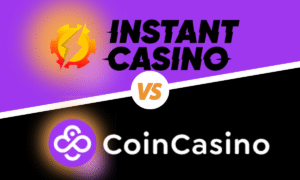[ad_1]
Given blockchain’s disruption of financial services and subsequent widespread application across industries, it’s hard to find a segment that has not been influenced by the technology. Cryptocurrencies have made a strong impact on payments, remittances, and foreign exchange. Initial coin offerings (ICOs) have challenged stock investing, startup loans, and venture capital. Even the food supply chain industry has been upended by blockchain.
Real estate hasn’t escaped blockchain disruption either. Previously, transacting high value assets such as real estate exclusively through digital channels has never been the norm. Real estate transactions are often conducted offline involving face-to-face engagements with various entities. Blockchain, however, opened up ways to change this. The introduction of smart contracts in blockchain platforms now allows assets like real estate to be tokenized and be traded like cryptocurrencies like bitcoin and ether.
Trading real estate this way varies. Here are six ways blockchain has changed the real estate game.
1. Platforms and Marketplaces
Real estate technology has traditionally been primarily concerned with listings and with connecting buyers and sellers. However, blockchain introduces new ways to trade real estate and can enable trading platforms and online marketplaces to support real estate transactions more comprehensively. For example, ATLANT has developed a platform that uses blockchain technology to facilitate real estate and rental property transactions. By tokenizing real property, assets can then be traded much like stocks on an exchange and transactions can be done online.
ATLANT allows sellers to tokenize assets, essentially handling it like a stock sale, and liquidating that asset through a token sale using the platform. The collected tokens can be exchanged for fiat currency, with buyers owning a percentage stake of the property.
2. No Intermediaries
Brokers, lawyers, and banks have long been part of the real estate ecosystem. However, blockchain may soon usher in a shift in their roles and participation in real estate transactions, according to a report by Deloitte. New platforms can eventually assume functions such as listings, payments, and legal documentation. Cutting out the intermediaries will result in buyers and sellers getting more out of their money as they save on commissions and fees charged by these intermediaries. This also makes the process much quicker as the back-and-forth between these middlemen gets cut.
Key Takeaways
- Blockchain technology has impacted the real estate industry in a variety of ways, including offering a new means for buyers and sellers to connect with one another.
- Blockchain could be used to cut intermediaries out of the real estate transaction process, thereby reducing costs.
- This technology could also help to codify the practice of fractional ownership of real estate.
3. Liquidity
Real estate has long been considered an illiquid asset since it takes time for sales to conclude. This isn’t the case with cryptocurrencies and tokens since they can, in theory, be readily traded for fiat currencies through exchanges. However, as tokens, real estate can be readily traded. A seller doesn’t have to wait for a buyer who can afford the whole property in order to get some value out of their property.
4. Fractional Ownership
By allowing fractional ownership, blockchain also lowers the barriers to real estate investing. Typically, investments would require significant money upfront in order to acquire property. Alternatively, investors with could also pool their money to acquire bigger ticket properties. Through blockchain, investors would simply have to access a trading app to buy and sell even fractions of tokens as they see fit. In addition, fractional ownership would also help them avoid managing the properties themselves such as maintenance and leasing.
Upkeep alone can add up to significant costs and dealing with tenants may be a troublesome effort. This also affects related activities such as lending where property owners often have to put their properties as collateral for loans in order to get quick access to cash. Depending on the terms, property owners may also continue enjoying use of their property.
5. Decentralization
Blockchain commands trust and security as a decentralized technology. Information stored in the blockchain is accessible to all peers on the network, making data transparent and immutable. One only has to go back to the housing bubble crash in 2008 to see how greed and the lack of transparency in the part of institutions can have catastrophic consequences. A decentralized exchange has trust built into the system. Since information can be verifiable to peers, buyers and sellers can have more confidence in conducting transactions. Fraud attempts would also be lessened. Smart contracts are increasingly becoming admissible records with Vermont and Arizona passing such legislation. As such, smart contracts would have more enforceability beyond the technology itself.
6. Costs
The transparency associated with a decentralized network can also trim down costs associated with real estate transactions. Beyond the savings made by cutting out intermediaries’ professional fees and commissions, there are other costs such as inspections costs, registration fees, loan fees, and taxes associated with real estate. These costs even vary depending on the territory that has jurisdiction. Like intermediaries, these can be reduced or even eliminated from the equation as platforms automate these processes and make them part of the system.
Global real estate is worth hundreds of trillions of dollars, but is dominated by the wealthy and large corporations. Through blockchain technology, it is possible that more people will be able to access the market where transactions can be made more transparent, secure, and equitable. Real estate transactions may eventually become truly peer-to-peer activities with blockchain-powered platforms doing most of the work.
[ad_2]
Source link






More Stories
SafeMoon Space – THE NEXT BIG DeFi. Last Chance To Buy/Reserve SMSP Token
The “Whirlwind” NFT Game And Dragon Pool Is The Highlight Of The Ecosystem Blockchain – Gaming
FRET: Future Real Estate Token That You Shouldn’t Miss Out On